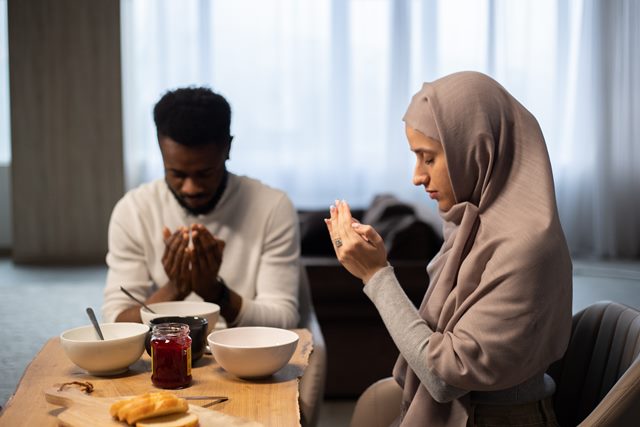How Political and Social Beliefs Can Affect Romantic Relationships
 Understanding the dynamics of romantic relationships involves delving into various factors that influence compatibility and connection. Among these factors, political and social beliefs play a significant role in shaping the interactions and overall satisfaction of partners. As society becomes increasingly polarized, the impact of differing political ideologies and social values on romantic relationships has garnered attention from researchers and relationship experts alike.
Understanding the dynamics of romantic relationships involves delving into various factors that influence compatibility and connection. Among these factors, political and social beliefs play a significant role in shaping the interactions and overall satisfaction of partners. As society becomes increasingly polarized, the impact of differing political ideologies and social values on romantic relationships has garnered attention from researchers and relationship experts alike.
This article explores how these beliefs can affect romantic partnerships, highlighting the challenges and potential pathways to harmony.
The Influence of Political Beliefs on Relationship Dynamics
Political beliefs are often deeply ingrained and can significantly influence how individuals perceive the world and interact with others. When partners hold opposing political views, it can lead to misunderstandings, conflicts, and even resentment.
Research indicates that political dissimilarity can create stress within relationships, particularly during contentious political climates or election cycles.
For instance, couples may find themselves arguing over political issues, which can escalate into broader disagreements about values and priorities.
- Communication Breakdown: Political disagreements can hinder effective communication. When partners feel strongly about their beliefs, they may struggle to listen to each other, leading to a breakdown in dialogue. This lack of communication can foster feelings of isolation and frustration, making it difficult for couples to navigate their differences.
- Social Identity and Group Dynamics: Political beliefs often align with social identities, which can further complicate relationships. Individuals may feel pressure to conform to the beliefs of their social circles, leading to a sense of loyalty that can conflict with their romantic partnerships. This phenomenon can create a divide between partners, especially if one feels marginalized or unsupported in their beliefs.
Social Beliefs and Relationship Compatibility
Beyond politics, social beliefs—encompassing views on issues such as gender roles, family structures, and cultural norms—also play a crucial role in relationship dynamics.
Partners who share similar social beliefs are more likely to experience harmony and understanding, while differing views can lead to tension and conflict.
- Expectations and Roles: Social beliefs shape expectations regarding roles within a relationship. For example, traditional views on gender roles may lead to disagreements about responsibilities in the household or parenting. When partners have differing expectations based on their social beliefs, it can create friction and dissatisfaction.
- Cultural Backgrounds: Cultural differences can also influence social beliefs. Partners from diverse backgrounds may have varying perspectives on family, marriage, and community involvement. These differences can enrich a relationship but may also require open dialogue and compromise to ensure both partners feel valued and understood.
Navigating Differences: Strategies for Couples
While political and social beliefs can pose challenges in romantic relationships, couples can adopt strategies to navigate these differences effectively. Open communication, empathy, and a willingness to compromise are essential components of a healthy partnership.
- Establishing Ground Rules for Discussions: Couples should create a safe space for discussing political and social beliefs. Establishing ground rules for these conversations can help prevent escalation and ensure that both partners feel heard. For instance, agreeing to listen without interrupting or to take breaks if discussions become heated can foster a more constructive dialogue.
- Finding Common Ground: Identifying shared values and beliefs can help couples bridge the gap between differing political and social views. By focusing on common goals and interests, partners can strengthen their connection and reduce the impact of their differences.
- Seeking Professional Support: In some cases, couples may benefit from seeking the guidance of a therapist or counselor. Professional support can provide tools and strategies for navigating complex discussions and improving communication skills.
The Potential for Growth and Understanding
Despite the challenges posed by differing political and social beliefs, these differences can also serve as opportunities for growth and understanding within a relationship. Engaging with diverse perspectives can enrich a couple's experience and foster deeper connections.
- Encouraging Open-Mindedness: Exposure to differing beliefs can encourage partners to become more open-minded and empathetic. By actively listening to each other's viewpoints, couples can develop a greater appreciation for their partner's experiences and values.
- Strengthening Bonds Through Conflict Resolution: Successfully navigating conflicts related to political and social beliefs can strengthen a couple's bond. Overcoming challenges together fosters resilience and reinforces the commitment to the relationship.
Political and social beliefs significantly impact romantic relationships, influencing communication, compatibility, and overall satisfaction. While these differences can create challenges, couples can adopt strategies to navigate them effectively, fostering understanding and growth. By prioritizing open communication and empathy, partners can build a strong foundation that transcends their differences, ultimately enriching their relationship.
Sources
- Klofstad, C. A., et al. (2013). Political Party Identification and Romantic Relationship Quality. PMC.
- Afifi, T. D., et al. (2020). Voting Dissimilarity and Relationship Quality. Journal of Social and Personal Relationships.
- Wilcox, C., & Wolfinger, N. H. (2015). Political Affiliation and Marital Happiness. General Social Survey.
- Van Duyn, E. (2023). The Impact of Political Differences on Romantic Relationships. University of Illinois Urbana-Champaign.
- Chlipala, A. A. (2023). Coping with Political Differences in Your Romantic Relationship. Verywell Mind.
- Pew Research Center. (2018). Political Polarization in the American Public.
- Twyman, J. (2016). Sexual Satisfaction and Political Identification. YouGov Survey.
- Enochs, K. (2017). Changing Attitudes Toward Inter-Party Marriage. Voice of America.
- Karpowitz, C. F., & Pope, J. C. (2018). Experiences of Americans in Relationships. National Survey.
- Israel, T. (2020). Beyond Your Bubble: How to Connect Across the Political Divide. Book Publication.
- Political Party Identification and Romantic Relationship Quality - PMC
- Coping With Political Differences in Your Romantic Relationship
- News Bureau | ILLINOIS



















































